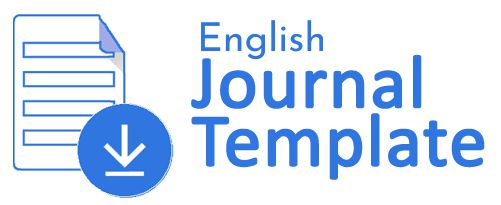Inovasi Pengelolaan Hubungan Masyarakat Untuk Peningkatan Partisipasi Orang Tua Dalam Kegiatan Belajar Anak
DOI:
https://doi.org/10.12928/jimp.v1i1.4120Keywords:
Inovasi, Hubungan Masyarakat, Orang tua, Kegiatan BelajarAbstract
PPenelitian ini bertujuan untuk memaparkan Inovasi program hubungan masyarakat untuk meningkatkan partisipasi orang tua dalam kegiatan belajar anak,Pelaksanaan koordinasi inovasi hubungan masyarakat untuk meningkatkan partisipasi orang tua dalam kegiatan belajar anak.Teknik-teknik inovasi hubungan masyarakat untuk meningkatkan partisipasi orang tua dalam kegiatan belajar anak.Inovasi evaluasi hubungan masyarakat untuk meningkatkan partisipasi orang tua dalam kegiatan belajar anak. Penelitian ini merupakan penelitian kualitatif deskriptif dengan pendekatan studi kasus. Subyek penelitian ini dilakukan di Sekolah Menengah Pertama Maur Kecamatan. Data penelitian didapatkan dari hasil observasi, wawancara, angket/kuesioner dan dokumentasi. Berdasarkan temuan dan hasil penelitian yang telah dilakukan, maka dapat disimpulkan Inovasi Program hubungan masyarakat di SMP Negeri Maur Kecamatan Rupit sangat penting untuk dilakukan karena dalam perencanaan diketahui apa apa yang harus dilakukan kedepannya. Dalam perencanaan humas diadakan rapat dinas di awal tahun ajaran dan melibatkan semua elemen di SMP Negeri Maur Kecamatan Rupit yaitu kepala sekolah, wakil kepala sekolah, Guru, Staf dan Komite SMP Negeri Maur Kecamatan Rupit dan dilakukan secara terbuka dan tidak tertutup para pihak yang terlibat memberikan saran saran dan masukan tentang perkembangan sekolah.Koordinasi inovasi hubungan masyarakat di SMP Negeri Maur Kecamatan Rupit.
References
Arif, M. T. (2019). PENELITIAN EVALUASI PENDIDIKAN. ADDABANA Jurnal Pendidikan Agma Islam, 2(2).
Anggoro, M. Linggar. 2008. Teori dan Profesi Kehumasan serta Aplikasinya di Indonesia.. Jakarta: Bumi Aksara
Hidayat, T. (2019). Pembahasan Studi Kasus sebagai Metodologi Penelitian. Universitas Muhammadiyah Purwokerto, 3(1).
Imaniyah, R., Soetopo, H., & Zulkarnain, W. (2016). PENGELOLAAN HUBUNGAN SEKOLAH DAN MASYARAKAT HOME-SCHOOLING. Jurnal Manajemen Dan Supervisi Pendidikan, 1(1). https://doi.org/10.17977/um025v1i12016p067
Jamaluddin, J. (2020). HUBUNGAN ANTARA SEKOLAH DAN MASYARAKAT. Jurnal Al-Qalam: Jurnal Kajian Islam & Pendidikan, 8(1). https://doi.org/10.47435/al-qalam.v8i1.202
Moleong, L. J. (2010). Metodologi Penelitian Kualitatif. In Remaja rosda Karya.
Mulyasa, E. (2014). Menjadi Kepala Sekolah yang Profesional. In Bandung: Remaja Rosdakarya.
Mulyono. 2009 Manajemen Administrasi dan Organisasi Pendidikan. Jogjakarta:Ar-ruzz Media
Nudin, B. (2015). Manajemen Humas Dalam PeningkatanPengelolaan Pendidikan Di Sd MuhammadiyahKadisoka Kalasan Sleman. UIN Sunan Kalijaga.
Rahmat, A. (2016). Manajemen Humas Sekolah. Manajemen Humas Sekolah.
Rukin. (2019). Metodologi Penelitian Kualitatif. In Yayasan Ahmar Cendekia Indonesia.
Sardiyanah, S. (2020). KONSEP EVALUASI DALAM PENDIDIKAN. Jurnal Al-Qalam: Jurnal Kajian Islam & Pendidikan, 8(1). https://doi.org/10.47435/al-qalam.v8i1.199
Wahyudin, U. R. (2020). Manajemen Pendidikan (Teori Dan Praktik Dalam Penyelenggaraan Sistem...). Deepublish.
Downloads
Published
How to Cite
Issue
Section
License
Copyright (c) 2021 Marsudi Marsudi, Sumarsih Sumarsih, Donni Pestalozi

This work is licensed under a Creative Commons Attribution-ShareAlike 4.0 International License.
This article's copyright is transferred to Universitas Ahmad Dahlan (UAD) if and when the item is accepted for publication. The undersigned hereby transfers any rights in and to the paper including without limitation all copyrights to UAD. The undersigned hereby represents and warrants that the article is original and that he/she is the author of the paper, except for material identified as to its source, with permission notices from the copyright owners where required. The undersigned represents that he/she has the power and authority to make and execute this assignment.
We declare that:
This paper has not been published in the same form elsewhere.
It will not be submitted anywhere else for publication before acceptance/rejection by this Journal.
Copyright permission is obtained for materials published elsewhere and which require this permission for reproduction.
Furthermore, I/We hereby transfer the unlimited rights of publication of the above-mentioned paper in whole to UAD. The copyright transfer covers the exclusive right to reproduce and distribute the article, including reprints, translations, photographic reproductions, microform, electronic form (offline, online), or any other reproductions of similar nature.
The corresponding author signs for and accepts responsibility for releasing this material on behalf of any co-authors. This agreement is to be signed by at least one of the authors who have obtained the co-author(s) assent where applicable. After submission of this agreement signed by the corresponding author, changes of authorship or in the order of the authors listed will not be accepted.
Retained Rights/Terms and Conditions
Authors retain all proprietary rights in any process, procedure, or article of manufacture described in the Work.
Authors may reproduce or authorize others to reproduce the Work or derivative works for the author's personal use or company use, provided that the source and the UAD copyright notice are indicated, the copies are not used in any way that implies UAD endorsement of a product or service of any employer, and the documents themselves are not offered for sale.
Although authors are permitted to re-use all or portions of the Work in other works, this does not include granting third-party requests for reprinting, republishing, or different types of re-use.







